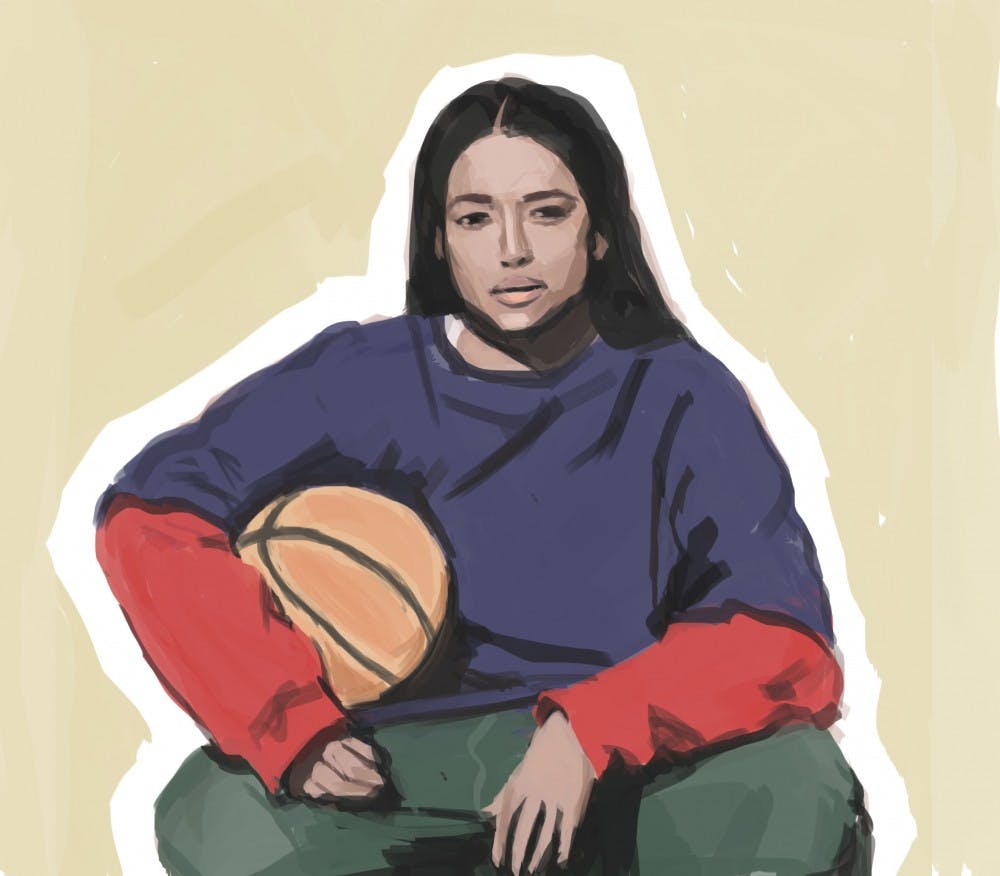Destiny Frasqueri, better known as Princess Nokia, is not your average new–school New York rapper. Nokia is unique not only for her ascendancy in a music genre dominated by men but for her powerful projections of feminism. Princess Nokia came from a difficult background, but has used her past experiences to empower the young women in her fanbase and encourage independence and strength—while also making some great music, of course. Frasqueri lost her mother at age three to AIDS and was placed in a foster home for seven years after that, where she was frequently abused by her foster mother. At age 16, she ran away from the foster home, with, as she puts it, “three dollars in my pocket and 75% on my cell phone battery.” Over time, Nokia honed her hip—hop talent while also developing an attitude of strength through independence, an attitude that has become one of her signature traits as an artist. Princess Nokia also identifies as bisexual, and the early part of her hip—hop career gained traction through performances at queer nightclubs. Needless to say, Princess Nokia has overcome a lot of hurdles to get to the point where she is now, and her autonomous nature and constant determination indicate that she’s not complacent with her place in the rap game today.
One of the most impressive parts of Princess Nokia’s rise in the hip–hop game has been the fact that many women in hip–hop face blatant chauvinism, often from both male industry executives and male “fans.” Homophobia is also not uncommon among artists in the genre. There has been some controversy surrounding Nokia along the way, such as when she reportedly poured her drink on—and slapped—a male audience member at the Cambridge University Fashion Show, saying, “that’s what you do when a white boy disrespects you" before leaving the stage and ending the set early. Regardless, one must understand the difficulties Princess Nokia has encountered along the way to get where she is now. The complexities surrounding race, gender, and sexual orientation are complex, and one can argue much more so in the genre of hip–hop than in other genres. At this point, it is also important to avoid assuming details about the struggles of people such as Princess Nokia facing societal obstacles, because unless you’ve actually been in her shoes, it would be trivializing to jump to conclusions about her life story and her journey to fame. That being said, it is abundantly clear that what got her to where she is today are the traits that she shows in each of her songs—musical talent and a determined attitude.
One of Nokia’s most popular songs is “Brujas," an aggressive, defiant song that proudly fights for both female and Latina empowerment. Bruja, which is “witch” in Spanish, was often used in a negative direction towards women, occasionally as slang for “bitch.” Yet in “Brujas,” Nokia takes back the term and creates her own meaning—a strong woman, possessing her own power, warning against those who “fuck with her energy.” “Brujas” is also Princess Nokia’s proud claiming of her heritage, as she raps, “I'm that Black a—Rican bruja straight out from the Yoruba/And my ancestors Nigerian, my grandmas was brujas.”
“Tomboy,” another track off her album 1992 Deluxe, is another loud and proud statement of Princess Nokia’s identity. The repeated “Who that is hoe? That girl is a tomboy” is Nokia’s clear–cut, unapologetic way of identifying with her masculine side. Nokia defies societal standards of beauty and femininity not only by identifying as a more masculine tomboy, but by proudly repping her “little titties and phat belly” in the chorus repeatedly. Nokia actively chooses to embrace her figure that is “unusual” for feminine societal standards rather than changing her ways. Sexualization of female hip–hop artists is obviously a huge problem for the genre, as many female rappers that put up huge numbers—from Nicki Minaj to Cardi B—have suffered from sexualization of their musical persona. Needless to say, there are lots of exceptions, particularly if you look past the artists with current radio hits towards some of the female artists putting out music that’s less popular than “Bodak Yellow” (such as Remy Ma and SZA). But having Princess Nokia come on stage and proudly claim her “little titties and phat belly” is undoubtedly a good thing for listeners that struggle with their body images—particularly teenagers not quite accustomed to hearing rappers happily rep the parts of their bodies which society might not deem desirable.
It seems that every song in 1992 Deluxe is dedicated to one part or another of Princess Nokia’s identity, and “ABCs of New York” is no different. Over a 90s boom–bap beat, Nokia makes her way through the alphabet linking up each letter to an aspect of the city she connected with. She navigates the beat with a cool ease, recalling things like “Stickball in the summer, you know it's summertime... Eating soul food, singing Doo–Wop every night/Subway trains goin' by.” One doesn’t have to had grown up in mid–90s New York to get the sense of nostalgia Nokia is trying to convey, and the employment of the 90s–esque beat only enhances that feeling of times past.
To say that Princess Nokia is an important up–and–comer in the rap game is an understatement. As both a rapper and role model, Nokia’s future is bright, even more so when you consider the amount of courage it took to get where she is today. When her rise as an artist inevitably comes, it will be thanks to who she has become by overcoming adversity—one of the most independent and determined rappers out there today who provides a voice for some of the most underrepresented groups in hip–hop. But the best aspect about Princess Nokia is that while her resolve as a person is a part of who she is, she doesn’t let her personality overshadow her music. And that’s great for all us fans out there, because she makes some pretty great music.







